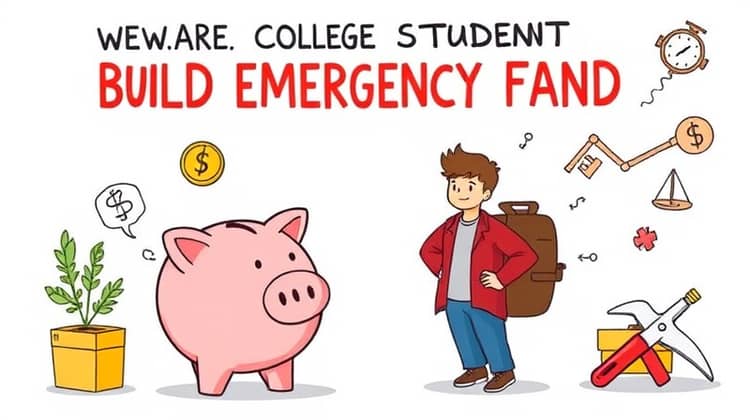Creating a college budget is critical for students as they navigate their academic journey. Without effective budgeting, students can quickly find themselves overwhelmed by financial stress, struggling to cover essential expenses and maintain a healthy work-life balance.
In this article, we will explore crucial elements to consider when preparing your college budget, ensuring you account for all potential expenses. From tuition to personal expenses, these essentials will help you lay a solid financial foundation for your college experience.
Tuition and Fees

Tuition and fees generally represent the largest component of a college student's budget. Depending on the institution, these costs can vary significantly; thus, it's essential to research and understand both the overall tuition fee and any additional fees that might apply to your specific program or course-related activities.
Investing time in understanding available financial aid options, scholarship opportunities, and payment plans can alleviate some tuition burdens. Always stay updated on deadlines and eligibility requirements to make the most of available resources.
- Tuition costs (in-state vs. out-of-state)
- Mandatory student fees (health, activity, and technology fees)
- Course material fees (lab and studio courses)
- Campus parking or transportation fees
By keeping track of these costs, you can create a more accurate budget that reflects the true expense of your education. Furthermore, breaking down these fees can help you identify areas where you might be able to save or allocate resources more effectively.
Housing

Housing is another significant expense in a college budget. Students often have options ranging from on-campus residences to off-campus apartments, each with its unique costs and conveniences. Carefully analyzing these choices can result in considerable savings in the long run.
When choosing housing, consider factors such as rent, utilities, distance to campus, and whether accommodations are furnished. Evaluating each option will ensure you find an affordable and comfortable living situation that meets your needs.
- On-campus dormitories
- Off-campus apartments
- Shared housing options
- Subletting opportunities
Effective housing choices can influence not just your budget but also your overall college experience. Assessing living arrangements and ensuring they align with your financial plan is vital for sustaining a healthy college life.
Food and Dining

Food and dining expenses can accumulate quickly if not managed properly. Depending on your housing situation, you may have different meal plan options available, each with associated costs that must be considered in your budget.
- Campus meal plans
- Grocery shopping
- Dining out options
- Snacks and coffee shop visits
A well-planned dietary budget allows for meals that support your well-being and academic performance. Hence, striking a balance between cooking at home and dining out can lead to significant savings.
Books and Supplies

Books and supplies represent another notable expense for college students. The cost of textbooks can vary widely, and many students end up spending hundreds each semester on course materials. It's essential to research alternatives for buying or renting textbooks, including used books or digital editions.
In addition to textbooks, students should also consider the costs of other necessary supplies like notebooks, writing instruments, laptops, and software. This foresight ensures you are well-equipped to succeed academically.
Transportation

Transportation is a critical, often overlooked expense in college budgeting. Depending on your location and living situation, your transportation needs may vary significantly. Students should consider both public transportation options and personal vehicle costs as part of their budget.
When evaluating transportation, it's also important to account for potential costs related to commuting, parking, and maintenance for those with a car. Planning for these expenses helps ensure you have access to reliable transport during your studies.
- Public transportation passes
- Fuel and maintenance costs for personal vehicles
- Parking permits
- Carpooling arrangements
Being mindful of transportation expenses not only aids in ensuring you can commute to classes but can also provide means to enjoy extracurricular activities conveniently.
Personal Expenses

Personal expenses are the day-to-day costs often overlooked in budgets but are essential for overall enjoyment of college life. These expenses can include everything from toiletries and clothing to entertainment and technology needs.
Keeping track of monthly personal expenses will give you a clearer picture of your financial situation and prevent overspending in non-essential areas that could affect your budget negatively.
- Toiletries and hygiene products
- Clothing and personal accessories
- Subscriptions (streaming services, gym memberships)
- Social activities and outings
Factoring these personal expenses into your budget will help you prepare for the unpredictable costs of college life while ensuring you can still enjoy the experiences that matter.
Health and Insurance

Health and insurance costs are critical to incorporate when managing your college budget. With many institutions requiring students to have health insurance, understanding these costs is essential to manage financial resources effectively.
Students should explore the health insurance offered through their school or look into external health coverage options. In addition, budgeting for potential medical expenses or prescriptions can provide peace of mind during one’s college years.
- Student health insurance plans
- Co-pays for medical visits
- Preventative care costs (vaccinations, check-ups)
- Emergency medical funds
Planning for health-related expenses not only matters for one’s health but also impacts your overall financial security during your college career.
Entertainment and Leisure

Entertainment and leisure activities are fundamental to maintaining a balanced college experience. Engaging in hobbies, exploring local attractions, and socializing are all crucial for mental well-being while attending college. However, it is easy for these expenses to quickly spiral if not planned thoughtfully.
Having a designated budget for entertainment can help students make the most of their leisure time without compromising their financial health. Allocating funds for various activities will help ensure you enjoy your college years without excessive financial strain. Especially with on-campus events or local activities, many opportunities are both affordable and rewarding.
- Movies and theater tickets
- Concerts and events
- Dining out with friends
- Sports games and recreational activities
Ultimately, balancing leisure and expenses will contribute positively to your overall college experience, ensuring sufficient time for social interactions and self-care.
Emergency Fund

The importance of having an emergency fund cannot be overstated for college students. Life can be unpredictable, and having a financial buffer can alleviate stress and mitigate the impact of unexpected expenses, such as medical emergency bills or urgent repairs.
Setting aside a small amount each month for an emergency fund fosters financial security, allowing students to respond effectively without relying on credit cards or loans to cover sudden costs.
Tips for Managing Your College Budget

As students embark on their budget journey, several tips can promote effective financial management throughout their college years. Establishing your monthly budget based on essential expenses and income sources is crucial in gaining valuable insights into your spending habits.
Regularly revisiting and adjusting your budget ensures that it remains relevant over time and reflects any changes in financial circumstances or lifestyle choices.
- Use budgeting apps or spreadsheets to track expenses
- Set financial goals and review them periodically
- Monitor subscriptions and recurring charges
- Seek financial advice or workshops offered by school resources
By actively managing your budget and making informed decisions, you can navigate your college finances confidently and with less stress.
Adjusting Your Budget

Budgeting is not a one-time activity but an ongoing process that requires regular adjustments. As your college life evolves, so do your financial needs and priorities. Awareness of changing circumstances enables students to adapt their budgets accordingly and sustain a healthy financial status.
Keep an eye on fluctuations in expenses, such as increased costs in utilities, rent, or unforeseen personal expenses that may arise during the semester. Factoring these changes promptly allows better overall financial management.
Conclusion

In conclusion, creating a comprehensive college budget is crucial for student success and stress reduction. By accounting for specific costs, students can take control of their finances and prioritize their academic and personal lives effectively.
Establishing good budgeting habits early on will reward students throughout their college journey and beyond, laying the groundwork for sound financial management in their professional lives.














